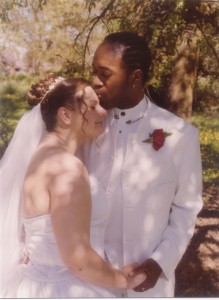The Wesleyan Church recognizes two sacraments, baptism and the Lord’s Supper. However, as I delved into our Anglican roots (John Wesley remained an Anglican priest until he died, despite founding the Methodist tradition), I found some acceptance of the other five, but they are “not counted as a sacrament of the gospel,” meaning not ordained by Jesus nor necessary for salvation, but still a part of Christian tradition. In fact, as I have looked at the remaining five sacraments/practices (please use whichever term that would cause you least offense) most churches practice them, sometimes by other names, even though they might not call them “sacraments.” Thus, I would hope we could at least agree that God can use these events as means of grace.

When I met the woman who would become my wife, I found that she, having grown up in a household with a Roman Catholic father and Lutheran mother, had a different view of the sacraments, including whether or not they should be called “sacraments” or “ordinances,” than I did, as a person who grew up Baptist. When asked if marriage is a sacrament, my wife usually responds, “My marriage is a sacrament. I can’t speak for yours.” I agree with her, and by that I mean not just the ceremony, but our marriage. Having recently officiated a marriage, and gearing up for another, I stand in awe of the mystery of Christ and the Church, which human marriage reflects (Ephesians 5:32). Jesus compared the Kingdom of Heaven to a wedding feast (Matthew 22:2-14) and we look forward to the wedding supper of the Lamb (Revelation 19:9). My marriage has certainly enhanced my relationship with God, and how I act toward my wife, how she acts toward me, and how we work together are all reflection of the spiritual reality of Christ and the Church. Continue reading The Sacraments as Means of Grace part 3: Marriage
